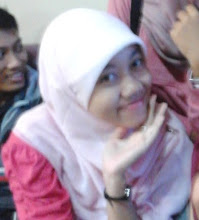The purpose of this
study was to know whether learning model of Thinking Aloud Pair Problem Solving
(TAPPS) can achieve mastery learning, student’s problem-solving ability in learning
of TAPPS higher than student’s problem-solving ability in expository learning,
and whether percentage of completeness students in learning of TAPPS higher the
percentage of completeness students in expository learning. The population in
this study was students of grade VIII SMP N 2 Pekalongan academic year
2012/2013. By cluster random sampling technique, the selected sample were
students of VIII-D as experiment group that applied learning of TAPPS with
worksheet based on Polya and control group was VIII-B that applied expository learning.
From result of mastery learning, showed that learning in experiment group can
achieve mastery learning. From result of the average diffrence test, showed
that student’s problem-solving ability in experiment group higher than
student’s problem-solving ability in control group. From result of the
proportion-one part test, showed that percentage of completeness students in experiment
group higher than percentage of completeness students in control group. The
conclusions obtained were learning of TAPPS can achieve mastery learning and student’s
problem-solving ability in learning of TAPPS higher than student’s
problem-solving ability in expository learning, and percentage of completeness
students in learning of TAPPS higher than percentage of completeness students
in expository learning.
Keywords: Effectiveness; Problem-solving
Ability; Thinking Aloud Pair
Problem Solving (TAPPS).





